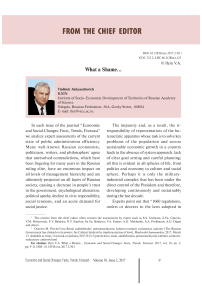What a shame...
Автор: Ilyin Vladimir Aleksandrovich
Журнал: Economic and Social Changes: Facts, Trends, Forecast @volnc-esc-en
Рубрика: From the chief editor
Статья в выпуске: 2 (50) т.10, 2017 года.
Бесплатный доступ
ID: 147223937 Короткий адрес: https://sciup.org/147223937
Текст ред. заметки What a shame...
In each issue of the journal “Economic and Social Changes: Facts, Trends, Forecast” we analyze expert assessments of the current state of public administration efficiency. Many well-known Russian economists, politicians, writers, and philosophers1 agree that unresolved contradictions, which have been lingering for many years in the Russian ruling elite, have an enormous impact on all levels of management hierarchy and are ultimately projected on all layers of Russian society, causing a decrease in people’s trust in the government, psychological alienation, political apathy, decline in civic responsibility, social tensions, and an acute demand for social justice.
The impunity and, as a result, the irresponsibility of representatives of the bureaucratic apparatus whose task is to solve key problems of the population and secure sustainable economic growth in a country leads to the absence of system approach, lack of clear goal setting and careful planning; all this is evident in all spheres of life, from politics and economy to culture and social sphere. Perhaps it is only the militaryindustrial complex that has been under the direct control of the President and therefore, developing continuously and sustainably during the last decade.
Experts point out that “1060 regulations, orders or decrees to the laws adopted in
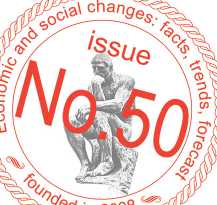
2013–2016 are still not ready, resulting in the fact that many of these laws cannot work fully”2. Arrests of governors have been going on: the period from 2003 to 2017 criminal proceedings were initiated against M. Mashkovtsev (Kamchatka Oblast, 2003), A. Barinov (Nenets Autonomous Okrug, 2007), A. Tishanin (Irkutsk Oblast, 2008), L. Korotkov (Amur Oblast, 2010), V. Dudka (Tula Oblast, 2011), V. Yurchenko (Novosibirsk Oblast, 2014), A. Khoroshavin (Sakhalin, 2015). N. Denin (Bryansk Oblast, 2015), V. Gaizer (Komi, 2015). N. Belykh (Kirov Oblast, 2016), A. Soloviev (Udmurtia, 2017).
According to experts, “criminal cases of top officials are in the public eye, they are reported in the federal media. But there are thousands of less publicized cases... The fight against corrupt officials is going on, and it has been going in full swing. For example, the famous case of V. Gaizer, Head of the Komi Republic. In September 2015 he was arrested and accused of organizing a criminal association. Fourteen people were arrested along with him, and they all formed almost the entire top of the Republic. This case is well-known. It is in the limelight. But as for other anti-corruption cases in Komi Republic, very few people outside the Republic know about them: in the same year of 2015, 108 people were arrested on similar charges, 113 – last year, 36 people were arrested in the 1st quarter of this year. And this region has very small population... In some municipalities, it is two mayors that are already behind bars” 3.
Indeed, a system approach to the fight against corruption is obvious. However, it is also clear that across the country hundreds of officials, bankers, businessmen have been engaging in criminal activities and amassing billion-dollar fortunes. This means that there is a flaw somewhere in the current system of public administration. At least, it is strange that the population of Russia, “the world’s richest country, has one of the largest reserves of hydrocarbons, minerals, cultivated areas, forests, biological resources, etc.”4 dreams of “living in prosperity; of being able to spend money without scraping a living and wants to live in a more fair and reasonably organized society”5.
In 2016, for the first time in the entire history of post-Soviet Russia, a federal official (Minister of Economic Development Alexei Ulyukayev) was detained for bribery. His place was taken by M. Oreshkin, who, according to experts, “has not worked a single day in the real economy, it is “unchartered waters” to him. He does not understand a bit how the real economy works, all his life he was engaged in analyzing the speculative “casino economy”. How can he develop a program for the development of something, the workings of which he just does not know? This is approximately the same as a ballet master coaching a football team”6.
In a long list of facts indicating the inefficiency of the modern public administration system there is one extremely ugly, yet revealing story: the breakdown of the regular election of the President and the Presidium of the Russian Academy of Sciences. March 20, 2017, all three candidates for the post (V. Fortov, V. Panchenko, and A. Makarov) withdrew their candidacies; as a result, the election was postponed to November, and the Academy remained without permanent leadership. A famous mathematician academician V. Kozlov became Acting President, so far he “makes no comment and apparently turned out in such a situation against his will”7.
Ingeneral, domestic science is a telling example of severe consequences of the whole range of negative factors that have “struck” the modern system of public administration. We can say that disruption of the presidential election at the Russian Academy of Sciences was a culmination of the processes that threw the Academy into confusion since the 1990s. “The policy of getting access to the body of the main operator of manual control inevitably creates a desire to eliminate competition and to abuse artificial monopoly, among other things, on the market of knowledge production”8.
It goes without saying that the development of high-tech manufacturing and
Monday, March 20, the election of the President of the Russian Academy of Sciences was to start. But the academicians and corresponding members who gathered in the hall on Leninsky Avenue were stunned by an unexpected announcement: all candidates for the position of the head of RAS withdrew their candidacies and the election will be postponed for six months. By the fall the principle of independent election may be cancelled – the State Duma is discussing a bill, under which the head of RAS will be appointed by the decree of the President of Russia... The current President of the Academy of Sciences explained the withdrawal of his candidacy by the nonregulated election procedure, which could cast a shadow on the legitimacy of a newly elected head of the Russian Academy of Sciences. However, not all believed the officially announced reason. It would be a farce if it did not have something serious behind it. And this serious matter is the fact that the leadership of the country is discontented with the Academy (E. Galimov)9.
knowledge-intensive industries has long been a major factor in geopolitical competition. Since the Cold War, the importance of this factor has become much greater: from the struggle for space exploration to the nuclear arms race. Today high technology is present in everyday life of every person, in every home, and people cannot imagine their life without gadgets and the Internet.
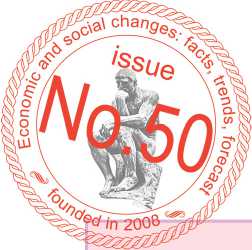
In the USSR, the country of scientific ideology, science could not be anything but advanced – it was a political issue, like spaceflight, for instance. The country just had to have a complete scientific complex – a rare phenomenon in the history. Problems of national economy and military-industrial complex were solved only because even the Communists retained a stock of reverence and preventive trust toward science10.
However, this is only the end result: every invention (whether a mobile phone or a new ballistic missile) has behind it a long process of translating scientific ideas into practical developments. At the heart of this process lies fundamental academic scientific knowledge, the experience accumulated by previous generations and transformed in accordance with modern requirements, and (which is equally) individual creative talent of certain representatives of scientific profession10.
The Strategy for scientific and technological development of Russia up to 2035 states that “in the next 10–15 years, the priorities of scientific and technological development of the Russian Federation should be those areas that will produce scientific and technological results and create technology that is the basis of innovation development of the domestic market and a stable position of Russia in the external market”11. Experts say that it is “definitely important, but without a continuous development of fundamental science the technology that we want to create will sooner or later reach an impasse, which will have to be overcome with the help of foreign science, if it is possible at all…”12
However, despite the importance of fundamental knowledge for the present and the future of our country, Russian academic science is undergoing a difficult, more precisely, a crisis period. “Back in the 1990s, when the funding of science collapsed, there emerged a continuing conflict between the government that was trying to reform the Russian Academy of Sciences and the Academy that was fighting for what was left of the funding and organizing the institutes. The essence of the conflict was always like this: the reformers believed that RAS prevents the modern organization of science by acquiring most of the resources, and the academicians believed that they were preserving the patches of the great Soviet science before the invasion of the barbarians. Until recently, RAS has remained an island of strange independence in the conditions of management centralization in the country, and in its autonomy it lasted much longer than the oligarchs and heavyweight governors...”13
The reform of RAS conducted in 2013 resembled a military operation in many respects. Its organizers tried to do it quietly, quickly and peremptorily. For many experts it is obvious that under the guise of good intentions the beneficiaries of the reforms were just trying to create a “friends’ science”,
V.M. Polterovich: “The decisive events began on 27 June. At the session of the Government, Chairman Dmitry Medvedev and Minister Dmitry Livanov presented a draft reform of RAS. V. Fortov, elected President of the Russian Academy of Sciences in May, who was also present at the session, learned about the existence of such a project in the evening of June 26. Discussion of the project was not on the agenda of the session. The project was approved by the Government and the next day, on June 28, it was submitted to the State Duma. It was supposed to be considered in the first reading on July 02, in the second reading on July 03, and the final, third reading was scheduled to be held on July 05 – the last day of work of the Duma. Members of the newly established councils – the Public Council and the Council for Science under the MES, which largely supported the policy pursued by Livanov – were not informed about the project. Several decrees were violated: RF Government Resolution No. 851 dated August 25, 2012 and the decree of the President of the Russian Federation No. 601 dated May 07, 2012, they provide for public discussions of such draft laws for a period of not less than 60 days before submitting them to the Duma. The draft was prepared without consultations with lawyers; it contained many ambiguities and gaps. The names of the authors of the draft were kept secret. The press called this campaign covert operation or blitzkrieg”14.
where “personalism is way ahead and guiding role... After the government and politics infiltrated science with their people and orders, there emerged a crowd of fake doctors of sciences whose academic degrees cannot be revoked, even when the insignificance of the author and his/ her findings is obvious and the diploma is preserved only through multi-move intrigue with the abuse of official position”1514 (Insert 1) .
Amid the scientists’ protests associated with the reform of RAS, a club “July, 1st” was established, which included up to a hundred academicians. About the same time there emerged the Society of Scientific Workers that includes more than a thousand people of different positions and ranks. “Young and active scientists prior to the 2013 reform criticized an obviously outdated style of management of RAS. They argued that actual modern science lived outside the administrative struggle between the government and RAS and that it was necessary to discuss how to fund the most successful and powerful scientific teams rather than argue who is worse” 1 1.
Thus, at a time when Russia needs to ensure its geo-political competitiveness and to keep the high standards achieved by the successes in foreign policy (which is impossible to do without the support of innovation technology and development of knowledgebased industries), the whole system of fundamental academic knowledge in our
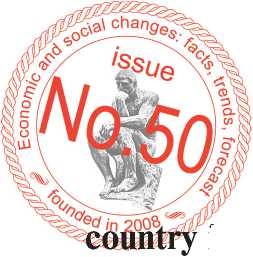
is under threat. The disruption of the
RAS election in March 2017 has become a litmus test for what is happening for many years – the alienation of the intellectual elite from power and society; the crisis of the engine that could pull all spheres of life and all segments of the population (Insert 2).
It should be noted that this “nasty situation” related to Russian science is only one example of the consequences of poor public administration . Corruption, the facts of which increasingly pop up in the press, and the struggle for power “behind the scenes” in the higher echelons of the ruling elite, even under the “arbitration and moderation”1918 of the President of the Russian Federation, adversely affect the functioning of key elements of the economic system, preventing the transition of Russian economy to an innovative path of development, exacerbating moral irresponsibility of senior executives of the largest budget-forming industrial enterprises20. The result is a crisis that many experts call “man-made”21.
Expert opinion of experts on the 2013 reform of RAS
Expert Opinion Source V.A. Rubakov (Academician, Doctor of Physics and Mathematics, Professor, head of Section of Nuclear Physics, RAS Institute for Nuclear Research) “Where there was no restructuring of institutes, the reform had minimal impact on scientific work. But directors of institutes, scientific secretaries and planning and economic agencies now have to do loads of paperwork, often meaningless, on a regular basis. Meanwhile, there were virtually no positive changes. Institutes remain underfunded. Our fundamental academic science remains in a difficult situation, if we talk about financial security...” Maksutova A., Gur’eva A., Gnilitskaya A., Leibin V. Akademiya skandalov [Academy of scandals]. Zhurnal “Ekspert-online” [“Expert Online Journal”], 2017, April 07. Available at: russian_reporter/2017/03/ akademiya-skandalov/ A. R. Oganov (Doctor of Engineering, Professor of the Moscow Institute of Physics and Technology and Skolkovo Institute of Science and Technology) “The reform itself stirs mixed feelings... Time will show whether it was necessary to do such a cruel deed to RAS. Now instead of giving the Academy some freedom in its powers, so many things are being beamed down from the top. Instead of increasing the funding, quite the opposite processes are taking place; but it goes without saying that any effective reform needs resources. If reforms are needed, than it is certainly not in the sphere of great ambitions and intrigues they need to be carried out, but in creating new directions and providing support to current research groups. The reality shows that attempts to do something new and great are facing red tape and administrative madness. And here it is especially important to rely on the scientists... Administrative problems in universities and in RAS are similar, there are administrative mergers, competition for resources and positions; and it is outstanding scientists that are the first to suffer in this game. Russian science could be developing rapidly now: some great scientists have returned, for the first time in many years there exist objective opportunities for rapid promotion of young teams, older generations are receding into the background, and there is a gap in the middle aged. But the subject of reforms remains formal and bureaucratic, with deliberate contempt for the “object of reforms” – science itself”. B.E Shtern (Doctor of Physics and Mathematics, leading researcher at RAS Institute for Nuclear Research) “Having knocked science, RAS and government together, the reform united all: people who would never shake hands with one another under ordinary circumstances, now spoke from the same rostrum at the same time. The reason is lack of confidence in the reformers, who do not reveal their goals, trying to deal with everything by sudden attack, apparently without consulting anyone, without discussing anything, paying no attention to any scientists.” V.M. Polterovich (Academician, Social Sciences Department of RAS, Economics Section) “ enormously costly and hopeless from a social point of view, the reform plan was the result of a complex combination of misconceptions and political motives. Among the political motives there is a major one, though not the only one, and it is the desire to snatch organizational independence away from the community of potential opponents of the regime, the opponents who, among other things, enjoy the respect and confidence of the population”. Polterovich V.M. Reforma RAN: ekspertnyi analiz [The reform of RAS: expert analysis]. Obshchestvennye nauki i sovremennost’ [Social sciences and modernity], 2014, no. 1, p. 26.
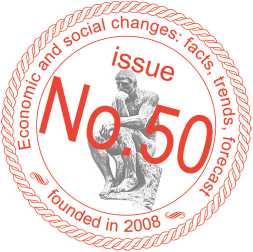
Insert 2
Expert opinion on the election of RAS President in March 20, 2017
Expert Opinion Source A.G. Aganbegyan (Academician, RAS Social Sciences Department, Economics Section) “It’s a the Soviet era, the country’s leadership approved candidates for the election and the general meeting of the Academy chose them. Now I don’t know what they want to do... I have never seen such a mess. One can be ashamed to be called academician”. Akademiki schitayut “pozorom” skandal s vyborami prezidenta RAN [Academicians consider the scandal with the election of RAS President a “shame”]. Gazeta “Kommersant”, 2017, March 27. Available at: doc/3254105 A.I. Miroshnikov (Academician, Doctor of Chemistry, Member of the Presidium of the Russian Academy of Sciences, RAS Department of Biological Sciences, Section of PhysicoChemical Biology) “What happened is a result of reforms launched in 2013. Unfortunately, the state has a strange attitude toward science. This is a big mistake. People just don’t understand what science is and what role it plays in modern society. Previously, we successfully represented our country in the world, we participated in symposiums abroad. We talked on equal terms with foreign colleagues. Now if we are allowed to give lectures, it is “against the wall”, we are not offered plenary lectures. And this attitude is a reflection of what is being done to science in our country. This is all very disappointing.” G.B. Kleiner (RAS Corresponding Member, Doctor of Economics, RAS Social Sciences Department, Economics Section) “They have been trying to belittle the authority of the Academy of Sciences foe more than a year. After the past events, in which, I believe, the government had played a hand, the authority of the Academy declined to an unacceptable limit. It was a powerful blow to the scientists and not only to us, it is a blow to innovation development of the Russian economy. We will face serious problems.” G.A. Mesyats (Academician, Member of the Presidium of Russian Academy of Sciences, Bureau of the Department of Physical Sciences) “We are witnessing the process of making us, patriots, into enemies of the nation. We are not dissidents so why is it happening?” Mekhanik A. RAN v institutsional’noi pustyne [RAS in an institutional desert]. Zhurnal “Ekspert” [Journal “Expert”], 2017, March 27 – April 03, p. 32. Zh.I. Alferov (Academician, Doctor of Physics and Mathematics, RAS Vice-President) “We are driven to the wall and we actually have to postpone the election till the fall. And we have to be very careful with the election of a new President of RAS. He will either work for the revival of the country, or agree with everyone and everything.” Vybory glavy RAN pereneseny na osen’ [Election of RAS Head postponed till the fall]. Novosti Sibirskoi nauki [News of Siberian science]. Available at: info/ru/ras/vozmozhnost-perenosa-vyborov-glavy-ran-20032017 V.P. Kalinushkin (Ph.D. in Physics and Mathematics, Chairman of RAS Trade Union) “It is obvious that under a totally false pretense RAS was just knocked out of the game for 8–10 months, for the period when decisions will be made on funding basic research in the country and for the period when these funds will be distributed.” Kotlyar P. RAN vybili iz igry na 8–10 mesyatsev [RAS knocked out of the game for 8–10 months]. “”, 2017, March 20. Available at: cience/2017/03/20_a_
S.Yu. Glazyev: “The policy that our financial authorities are pursuing, is clearly “alien” in its essence, it goes against the entire experience of today’s world”22.
N. Kolomeitsev: «We have a government of big talkers who are not responsible for anything. No minister is responsible for pieces, kilometers or cubic meters. Their major goal is to talk about a strategy or road map, to present it, and then, shortly before the implementation timeline, create a new map with shifted timeline23.
A. Aivazov: “Due to the fact that they do not understand the fundamental laws of economic development and due to their commitment to liberal dogma, Russian leaders dooms the country to a long-term stagnation that can prevent Russia from becoming one of the main centers of power in a polycentric world system not so much in the military-political as in economic sense”24.
Today2, the consequences of poor governance, and certain people responsible for dealing with the issues of domestic economic development are being used by leaders of non-system opposition. The protests arranged by them mobilize a certain number of people from different socia and it speaks not so much about a purely utilitarian threat of rising social tension before the presidential election, as about a more global issue – the looming critical mass, the foundation of which is dissatisfaction with the social justice that is maintained and protected by the government. The results of regular polls clearly demonstrate the fact that the representatives of various strata of Russian society are unanimous in the opinion that the state is unable to cope with the challenge of economic recovery and growth of welfare of citizens: according to the surveys conducted on the territory of the Vologda Oblast, in 2011–2016, only 27–30% of the population considered that the President successfully copes with this issue, while the opposite viewpoint is expressed by about 55–60%, which is two times higher (Insert 3).
According to experts, the growth of public activity of the population is observed since the second half of 2016, but at the time it did not have a nature of protest actions (the speech was against the Yarovaya law and the “Flayers from Khabarovsk”) Nevertheless, “even such protests seemingly not related to socioeconomic policy in the future could turn out to be a delay-action bomb. If people who have shown no interest in politics understand that their problems are directly related to the actions of the authorities, then we will get several other notable groups within the general protest movement”25.
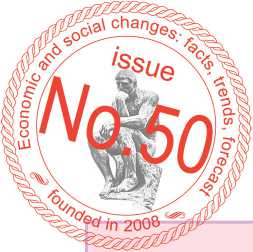
A. Kurtov: “A lot of young people participated in the protests against corruption, and it was mostly adults who took part in the March in memory of Nemtsov. It is mostly the middle class that comes to meetings with deputies against paid parking; and it is family breadwinners who protest against “Platon”, an electronic toll collection system. The rallies at Bolotnaya Square were mostly attended by educated people. Women with children demand the optimization of healthcare be stopped. Rallies against election fraud and against United Russia are attended by politically charged people. Tomsk residents take to streets to protect their TV... If this series is continued, it turns out that active protests cover a lot of different people and regions, and at the root of all these protest actions is one adversary – the power”26.
V.V. Fedorov: “The proposal, which Putin is to make to the society, will determine not only the percentage of those who will vote for him, but also the quality of his victory. It is necessary to win not only with the help of persistent and faithful followers, although they are the most important, but also by gaining the confidence of new social groups... The main intrigue of the election consists not in a set of opposition candidates, but on the agenda and the message, with which Putin will go to the election and on the image of the future, which he is to present to the society for the next six years. This is a very long period of time – in itself, and especially now, when the flow of time was dramatically accelerated by the communications revolution”27.
Describing the March in memory of Boris Nemtsov organized by the non-systemic opposition in February 2017, the newspaper “Nezavisimaya Gazeta” writes: “The mood of the participants and their slogans were combative, they reminded more about the Dissenter’s March held earlier than about the previous year’s procession that had been truly sorrowful. The current atmosphere could be assessed as more radical and largely anti-Putin”28.
Thus, in 2017, i.e. a year before the presidential election and regional election of governors29, a greater outreach of the opposition forces threatens to increase social tensions, and in many ways it is impossible
In your opinion, how successful is the RF President in ensuring economic recovery and increase in the citizens’ welfare? (answer option: “successful and fairly successful” , percentage of the number of respondents)
|
Population group |
о о см |
о см |
со о см |
О см |
LO О см |
со о см |
со см CD С —э |
со о см < |
о см о |
со о см CD о |
о см "cd |
о см < |
О) to о $ <( 5 |
Dynamics (+/-), the latest 6 surveys compared to… |
||
|
2015 |
2011 |
2007 |
||||||||||||||
|
Sex |
||||||||||||||||
|
Men |
47.3 |
30.3 |
31.3 |
33.6 |
34.0 |
27.5 |
29.6 |
27.5 |
23.8 |
28.0 |
25.0 |
25.0 |
26.5 |
-8 |
-4 |
-21 |
|
Women |
47.2 |
31.1 |
31.3 |
35.8 |
34.3 |
27.1 |
25.9 |
26.1 |
28.5 |
26.5 |
26.9 |
26.4 |
26.7 |
-8 |
-4 |
-21 |
|
Age |
||||||||||||||||
|
Under 30 |
51.6 |
31.0 |
29.9 |
34.8 |
34.7 |
29.6 |
29.9 |
29.2 |
28.8 |
29.5 |
28.1 |
23.8 |
28.2 |
-7 |
-3 |
-23 |
|
30-55 |
47.9 |
29.6 |
31.6 |
33.4 |
34.6 |
26.3 |
26.0 |
26.4 |
24.0 |
26.0 |
26.0 |
26.2 |
25.8 |
-9 |
-4 |
-22 |
|
Over 55 |
42.2 |
32.3 |
32.1 |
36.8 |
33.1 |
27.2 |
28.3 |
25.7 |
28.3 |
27.6 |
25.0 |
26.3 |
26.9 |
-6 |
-5 |
-15 |
|
Education |
||||||||||||||||
|
Secondary and incomplete secondary |
43.1 |
27.4 |
30.0 |
32.6 |
31.9 |
24.2 |
23.6 |
24.2 |
21.6 |
23.4 |
20.5 |
22.6 |
22.7 |
-9 |
-5 |
-21 |
|
Secondary vocational |
47.9 |
31.8 |
31.0 |
36.1 |
34.3 |
26.8 |
27.0 |
26.6 |
27.7 |
28.4 |
27.2 |
23.6 |
26.8 |
-8 |
-5 |
-21 |
|
Higher and incomplete higher |
51.5 |
32.9 |
33.1 |
36.0 |
36.3 |
31.4 |
33.2 |
29.9 |
30.5 |
30.4 |
30.9 |
32.1 |
31.2 |
-5 |
-2 |
-20 |
|
Income groups |
||||||||||||||||
|
20% of the poorest people |
41.8 |
20.2 |
24.2 |
24.6 |
20.4 |
19.0 |
18.0 |
16.9 |
21.5 |
22.3 |
18.5 |
22.0 |
19.9 |
-1 |
0 |
-22 |
|
60% of the people with median income |
46.6 |
32.3 |
31.8 |
35.7 |
36.1 |
26.8 |
27.1 |
23.9 |
27.0 |
26.7 |
24.7 |
23.7 |
25.5 |
-11 |
-7 |
-21 |
|
20% of the most prosperous people |
60.2 |
37.7 |
37.1 |
43.6 |
41.8 |
35.4 |
39.3 |
39.5 |
32.0 |
31.5 |
37.3 |
33.0 |
35.4 |
-6 |
-2 |
-25 |
|
Territories |
||||||||||||||||
|
Vologda |
41.1 |
31.2 |
27.3 |
30.5 |
30.8 |
27.4 |
27.7 |
25.9 |
24.4 |
26.4 |
24.7 |
26.8 |
26.0 |
-5 |
-5 |
-15 |
|
Cherepovets |
58.4 |
36.7 |
32.1 |
40.2 |
37.5 |
30.1 |
31.2 |
34.1 |
31.5 |
27.8 |
31.0 |
30.8 |
31.1 |
-6 |
-6 |
-27 |
|
Districts |
44.5 |
27.5 |
33.0 |
34.2 |
34.1 |
25.5 |
25.4 |
23.1 |
24.6 |
27.3 |
24.0 |
22.3 |
24.5 |
-10 |
-3 |
-20 |
|
Oblast |
47.2 |
30.7 |
31.3 |
34.8 |
34.1 |
27.2 |
27.5 |
26.7 |
26.4 |
27.2 |
26.1 |
25.8 |
26.6 |
-8 |
-4 |
-21 |
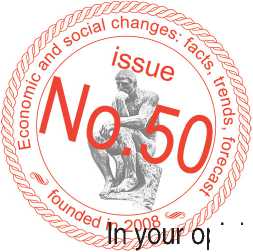
pinion, how successful is the RF President in ensuring economic recovery and increase in the citizens’ welfare? (answer option: “without much success and completely unsuccessful” , percentage of the number of respondents)
|
Population group |
о о сч |
о см |
со о см |
о см |
ю о см |
со о СМ |
со |
со о см О) < |
со о СМ о |
со CD о |
о см "о |
о сч |
° 2 о, | ® 5 ^ ^ |
Dynamics (+/-), the latest 6 surveys compared to… |
||
|
2015 |
2011 |
2007 |
||||||||||||||
|
Sex |
||||||||||||||||
|
Men |
40.7 |
57.3 |
57.6 |
54.7 |
52.6 |
59.2 |
58.0 |
61.0 |
61.0 |
60.3 |
63.9 |
61.0 |
61.0 |
+8 |
+4 |
+20 |
|
Women |
37.7 |
54.6 |
56.2 |
52.4 |
52.1 |
59.6 |
60.0 |
60.0 |
60.7 |
61.7 |
55.2 |
54.3 |
58.7 |
+7 |
+4 |
+21 |
|
Age |
||||||||||||||||
|
Under 30 |
33.7 |
53.7 |
55.3 |
52.2 |
50.1 |
57.1 |
58.1 |
57.4 |
56.3 |
58.0 |
55.4 |
53.1 |
56.4 |
+6 |
+3 |
+23 |
|
30-55 |
38.7 |
58.1 |
57.5 |
54.8 |
52.9 |
60.8 |
61.1 |
62.1 |
62.8 |
61.6 |
59.6 |
58.6 |
61.0 |
+8 |
+3 |
+22 |
|
Over 55 |
44.4 |
53.9 |
56.9 |
52.3 |
52.9 |
58.9 |
57.0 |
59.8 |
60.8 |
62.1 |
60.4 |
58.0 |
59.7 |
+7 |
+6 |
+15 |
|
Education |
||||||||||||||||
|
Secondary and incomplete secondary |
40.9 |
55.3 |
57.0 |
54.6 |
52.8 |
59.8 |
60.3 |
60.2 |
61.4 |
62.1 |
63.4 |
57.1 |
60.8 |
+8 |
+5 |
+20 |
|
Secondary vocational |
39.1 |
55.5 |
57.1 |
52.5 |
51.6 |
59.4 |
59.1 |
59.1 |
60.8 |
60.7 |
57.8 |
58.4 |
59.3 |
+8 |
+4 |
+20 |
|
Higher and incomplete higher |
36.7 |
56.4 |
56.4 |
52.9 |
52.6 |
58.8 |
57.6 |
61.6 |
60.2 |
60.1 |
56.0 |
56.3 |
58.6 |
+6 |
+2 |
+22 |
|
Income groups |
||||||||||||||||
|
20% of the poorest people |
42.8 |
62.2 |
61.8 |
63.4 |
61.8 |
62.4 |
66.4 |
68.6 |
61.1 |
59.7 |
63.1 |
59.3 |
63.0 |
+1 |
+1 |
+20 |
|
60% of the people with median income |
40.1 |
54.9 |
56.7 |
52.6 |
51.4 |
60.6 |
60.2 |
61.6 |
61.8 |
63.1 |
61.9 |
59.7 |
61.4 |
+10 |
+7 |
+21 |
|
20% of the most prosperous people |
30.4 |
53.9 |
53.8 |
47.4 |
47.3 |
55.7 |
55.3 |
53.3 |
60.9 |
56.8 |
47.9 |
53.5 |
54.6 |
+7 |
+1 |
+24 |
|
Territories |
||||||||||||||||
|
Vologda |
41.8 |
53.3 |
61.3 |
53.2 |
54.8 |
60.1 |
59.6 |
61.3 |
64.7 |
63.8 |
58.5 |
57.5 |
60.9 |
+6 |
+8 |
+19 |
|
Cherepovets |
34.1 |
57.7 |
57.5 |
51.7 |
51.8 |
62.8 |
62.1 |
60.9 |
62.3 |
64.3 |
61.5 |
58.7 |
61.6 |
+10 |
+4 |
+28 |
|
Districts |
40.2 |
56.0 |
54.2 |
54.4 |
51.3 |
57.1 |
57.2 |
59.7 |
57.9 |
57.7 |
58.0 |
56.5 |
57.8 |
+7 |
+2 |
+18 |
|
Oblast |
39.0 |
55.8 |
56.8 |
53.4 |
52.3 |
59.4 |
59.1 |
60.4 |
60.9 |
61.1 |
59.1 |
57.3 |
59.7 |
+7 |
+4 |
+21 |
More than 50% of the population in all major social strata considers that the President’s actions aimed at economic recovery and growth of welfare of citizens are not successful. According to the latest data (April 2017) in 11 of 14 socio-demographic categories of the population this opinion is shared by 57–60%.
In 2016 compared to 2015, the share of negative assessments increased by 2–12 p.p.; in comparison with 2007 – by 18–28 p.p.
We can talk about relatively positive changes in the short-term dynamics (over the latest 6 surveys) only with respect to women (the proportion of negative evaluations decreased by 6 p.p., from 60 to 54%) and people who, according to their own assessments of their incomes fall into the category of 20% of the poorest (from June 2016 to April 2017, the proportion of people who consider unsuccessful the actions of the President aimed to solve financial problems of the population in this group decreased by 7 p.p., from 66 to 59%).
It cannot be concluded that at least in one of the 14 considered categories of citizens there has been a continuous decrease in negative assessments of the success with which the President handles the issues of economic recovery and growth of welfare of citizens.
to disagree with their leaders who claim that “now the ground seems favorable for the protests”30; “the government itself is helping us, there will be even more economic and political demands”31; “we are unable even to predict what the next notable event is going to be, especially when it comes to economic protests. Despite the assurances of the government, Russians don’t feel any positive changes in their lives...”32.
The largest protest rallies held in Russia in the 2010s were attended by dozens (according to some estimates – hundreds) of thousands of people; they were the Russians dissatisfied
with the state of affairs in the country,
issues of social justice, social welfare and
decent quality of life. According to the Ministry of Internal Affairs, in 2012 the rally on Bolotnaya Square was attended by up to 36 thousand people, the rally on Poklonnaya Hill – by 138 thousand people33. These figures by themselves speak volumes, but the opinion of experts arises even greater concern: “God forbid, if one day there might be something similar to Bolotnaya Square and Poklonnaya Hill joining forces...” 34.
The country is tired of the “ugly” stories and is now waiting for the President to take decisive action.
Список литературы What a shame...
- Ozerova M. Pravitel'stvo Rossii zakhlebnulos' polnomochiyami: kabmin tormozit realizatsiyu zakonov . Moskovskii komsomolets, 2017, March 13. Available at: http://www.mk.ru/politics/2017/03/13/pravitelstvo-rossii-zakhlebnulos-polnomochiyami-kabmin-tormozit-realizaciyu-zakonov.html
- Fadeev V.A. News on Channel One Russia, April 09, 2017. Official Website of Channel One Russia. Available at: https://www.1tv.ru/news/issue/2017-04-09/21:00#10
- Gorshkov M.K., Krumm R., Tikhonova N.E. (Eds.). O chem mechtayut rossiyane: ideal i real'nost' . Moscow: Ves' mir, 2013. P. 23
- Aivazov A. Integral'noe planirovanie . Gazeta "Zavtra", 2017, March 23. Available at: http://zavtra.ru/blogs/integral_noe_planirovanie
- Maksutova A., Gur'eva A., Gnilitskaya A., Leibin V. Akademiya skandalov . Zhurnal "Ekspert-online" , 2017, April 07. Available at: http://expert.ru/russian_reporter/2017/03/akademiya-skandalov
- Rubtsov A. "Science of friends": why scientists and the authorities in Russia do not trust each other. RBC Channel, March 28, 2017. Available at: http://www.rbc.ru/opinions/society/28/03/2017/58da36dc9a794784062cadda
- Goncharova O. Who disrupted the election of the President of the Russian Academy of Sciences and why? Information resource "Vademecum". Available at: ven.:http://www.vademec.ru/article/kto_i_zachem_sorval_vybory_prezidenta_ran/
- About the Strategy for scientific and technological development of the Russian Federation: Decree of the President of the Russian Federation from December 01, 2016 No. 642. Official website of Russian President. Available at:http://www.kremlin.ru/acts/bank/41449
- Mekhanik A. RAN v institutsional'noi pustyne . Zhurnal "Ekspert" , 2017, March 27 -April 03, p. 34.
- Polterovich V.M. Reforma RAN: ekspertnyi analiz . Social sciences and modernity, 2014, no. 1, p. 8
- Arbitrazh Putina. Redaktsionnaya stat'ya . Nezavisimaya gazeta, 2016, November 17. Available at: http://www.ng.ru/editorial/2016-11-17/2_6861_red.html
- Ilyin V.A. Non-systemic solutions of systemic problems. Economic and Social Changes: Facts, Trends, Forecast, 2015, no. 3, pp. 9-19
- Ilyin V.A. National and regional security: a view from the region. Economic and Social Changes: Facts, Trends, Forecast, 2013, no. 3, pp. 9-20.
- Solov'eva O. Man-made crisis of the national economy. Blog "Geopolitics: scenarios and forecasts" from 06.04.2017. Available at: http://sensaysay.ru/blog/43447989658/Rukotvornyiy-krizis-otechestvennoy-ekonomiki
- Gur'yanov S. Glaz'ev nazval kreditno-denezhnuyu politiku Rossii ekzoticheskoi . Gazeta "Vzglyad", 2017, March 30. Available at: https://vz.ru/news/2017/3/30/864215.print.html
- Gorbachev A. Russia has been called a "boiling pot". Official website of the community "Politika" from 03.03.2017. Available at: http://maxpark.com/community/politic/content/5711869
- Poklonnaya Hill against Bolotnaya Square. Online newspaper "Stoletiye". Available at: http://www.stoletie.ru/na_pervuiu_polosu/poklonnaja_protiv_bolotnoj_2012-02-04.html
- Prokhanov A. Pokaites', ekhidny! . Gazeta "Zavtra", 2017, March 22. Available at: http://zavtra.ru/blogs/pokajtes_ehidni
- Garmonenko D. Novaya oppozitsiya prorvalas' v 60 gorodov . Nezavisimaya gazeta, 2017, February 21. Available at: http://www.ng.ru/politics/2017-02-21/3_6934_newopposicia.html

